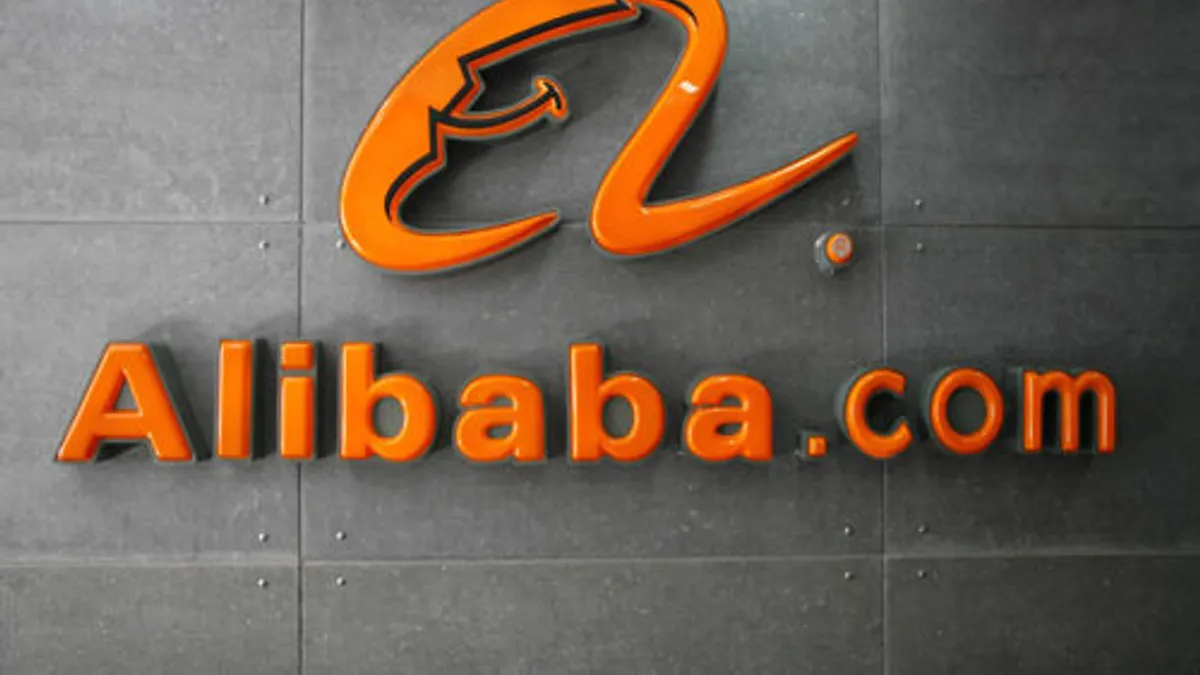Dive Brief:
- Alibaba Group will spend 100 billion yuan ($15 billion) over the next five years to expand its Cainiao logistics network, further demonstrating its overseas expansion plans, Reuters reported Tuesday. Alibaba has spent 5.3 billion yuan to increase its stake in Cainiao from 47% to 51%.
- A company executive called the move a demonstration of its commitment to creating the most efficient logistics network in China and elsewhere around the world.
- Alibaba is currently expanding its e-commerce and logistics network and diversifying its customer base. The company also recently announced the creation of direct sales channels in countries around Southeast Asia.
Dive Insight:
Alibaba's expansion into logistics is part of the company's effort to create a network of service.
One of Alibaba's early moves into logistics involved its collaboration with the Maersk Line, which first gave it freight forwarding capability, even if only eight Chinese ports were initially available. The Chinese company's next venture into logistics came via its memorandum of understanding (MOU) with Kuehne + Nagel, which offered all of Alibaba's shipping clients access to Kuehne + Nagel's logistics network. Alibaba soon undertook another MOU with CMA CGM, similar to that it held with Maersk, wherein shippers can reserve space for lower fees and both carriers gain access to a wider market.
These expansions are generally seen as an intelligent strategy for Alibaba.
"Alibaba making moves to obtain a logistics company is a smart move for their long-term business plan, and one that mirrors Amazon's acquisition of aircraft and the building out of its own cargo fleet and hub," Tushar Patel, CMO of Kibo, told Supply Chain Dive. "Alibaba, and other large companies, feel that removing the middle man gives them better control over the customer experience, and very likely reduces costs typically absorbed by consumers."
Reducing costs contributes greatly to customer satisfaction, but also allows a company to develop a more nimble supply chain that turns a bigger profit.
"The good news is that retailers don't need to be on the verge of ‘taking over the world’ in order to provide great customer experiences and reduce costs," Patel said.












